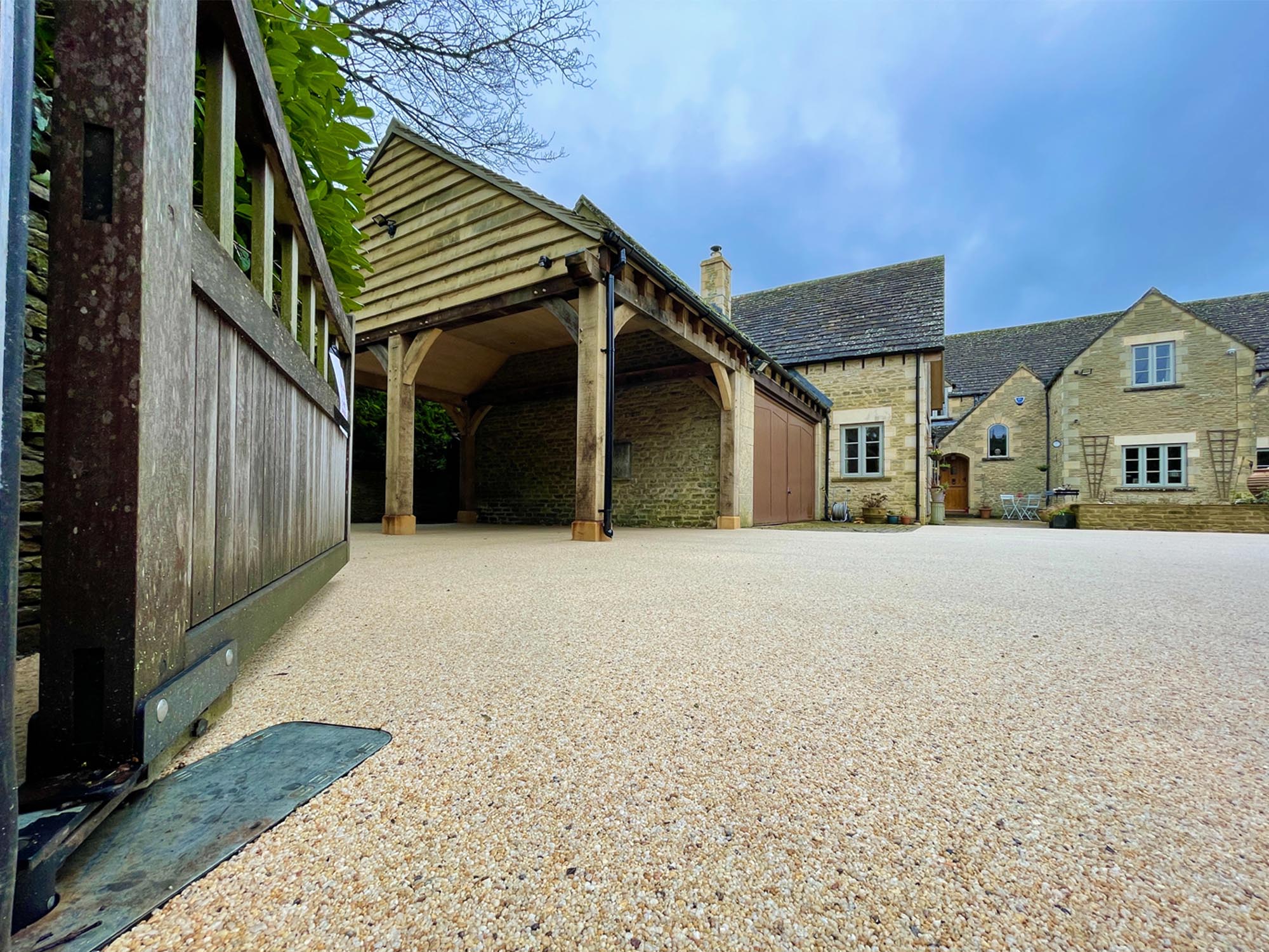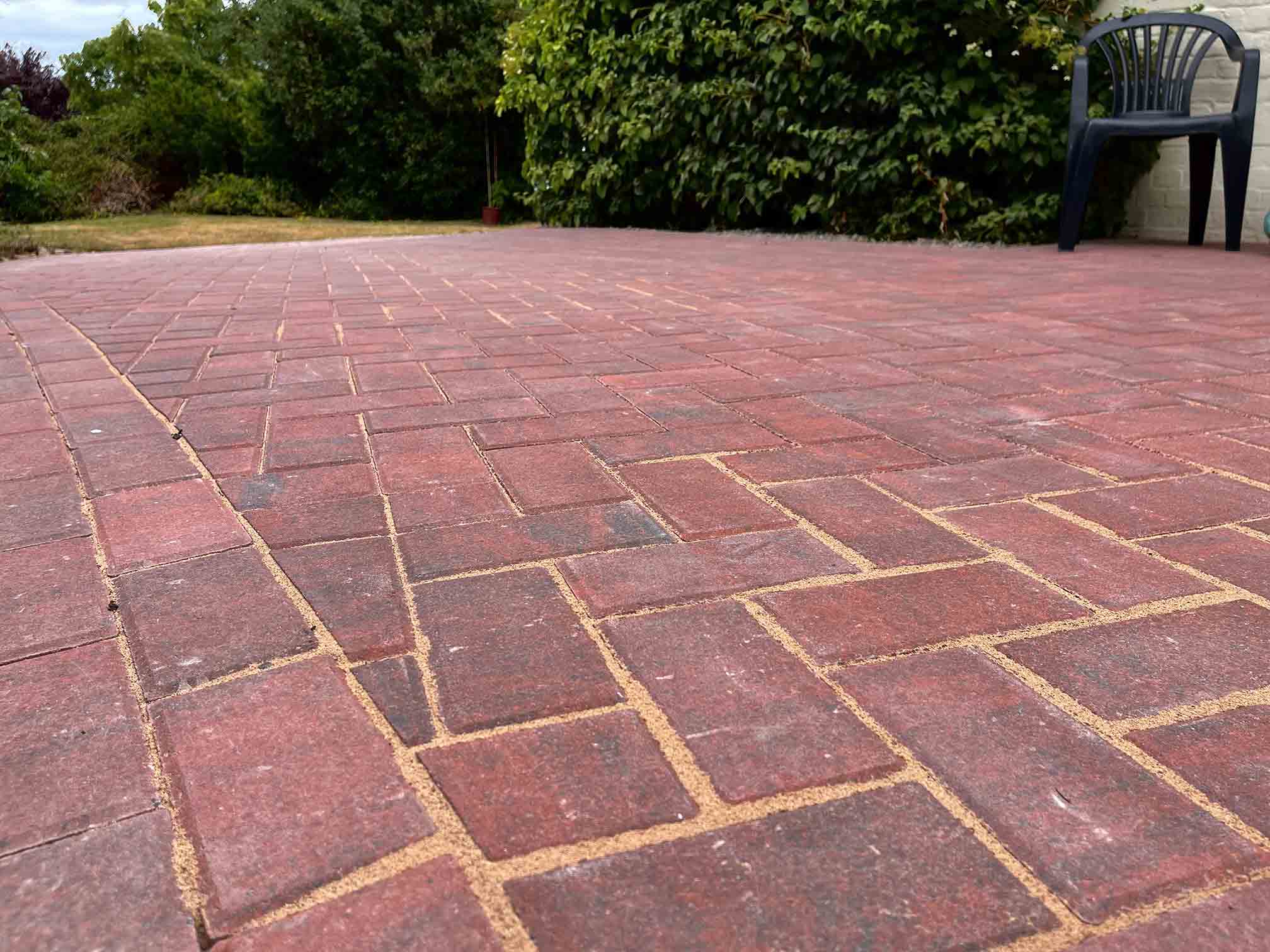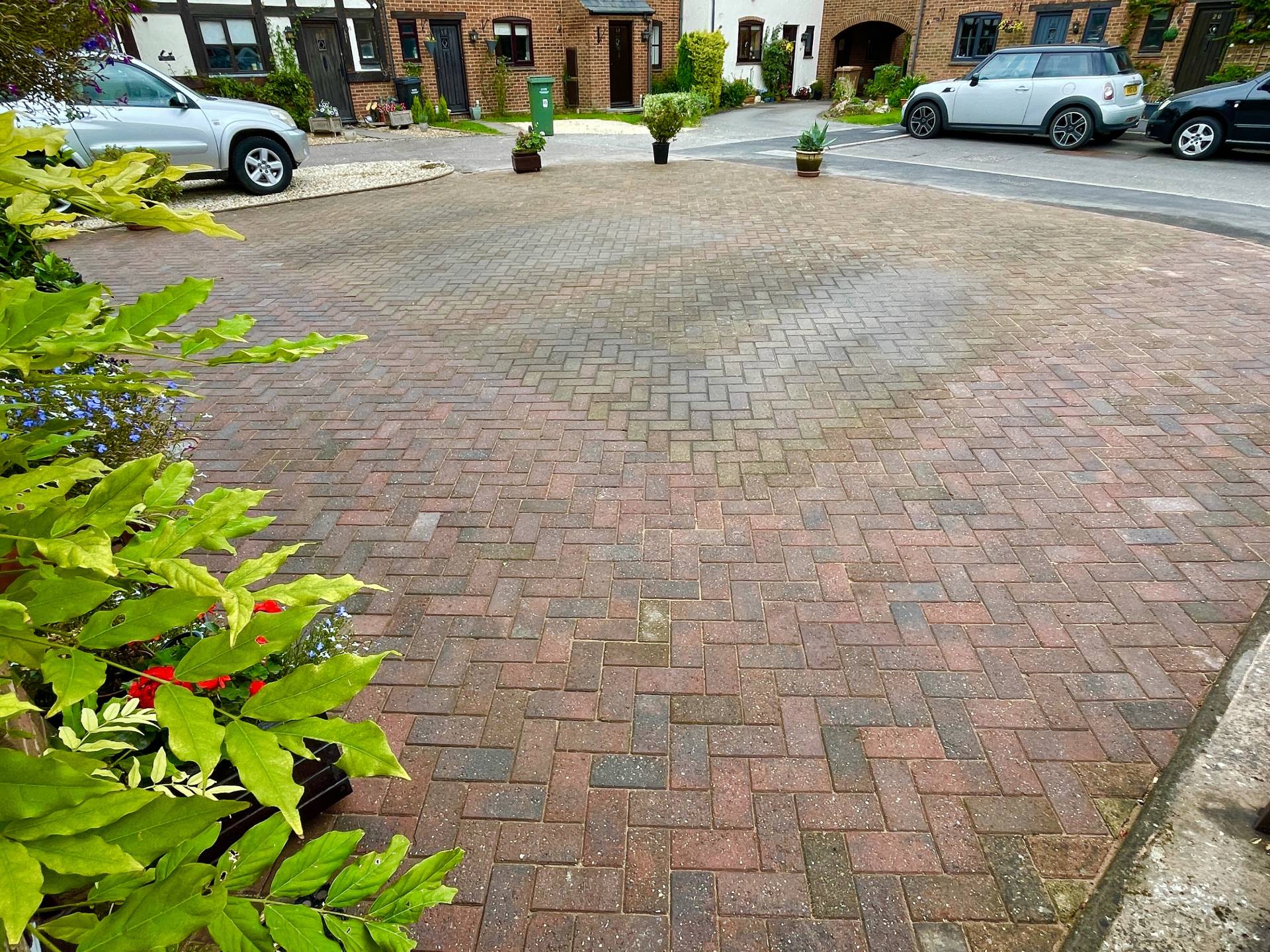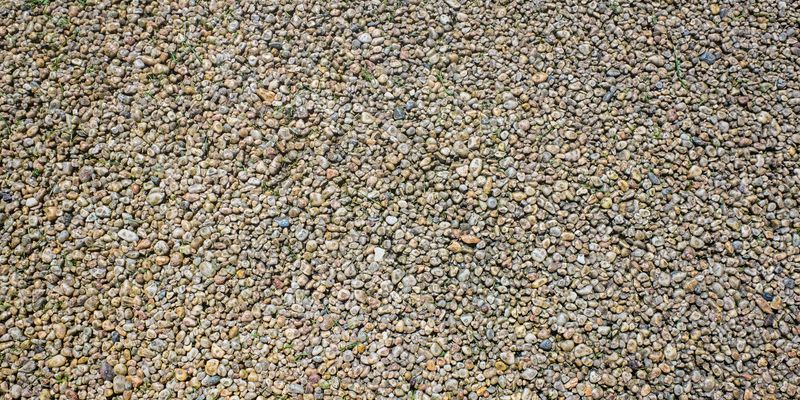
IS A RESIN DRIVEWAY CHEAPER THAN BLOCK PAVING?
Blog
When choosing the perfect driveway for your home, the options can be overwhelming. Two popular choices that you might consider are resin driveways and block paving. Both offer distinct advantages in terms of aesthetics, durability, and maintenance, but one crucial factor often tips the scales: cost.
In this blog post, we'll examine the financial aspects of a resin-bound driveway versus block paving to help you make an informed decision. Whether you're planning a complete overhaul or just looking to spruce up your curb appeal, understanding the cost implications of each option will ensure you get the best value for your investment. So, is a resin driveway cheaper than block paving? Let's find out.
What are Resin and block paving driveways?
Before we examine the costs of these driveways, let's familiarise ourselves with what they are and how they differ from each other.
Resin Bound Driveway
A resin-bound driveway is a surface made by mixing aggregate stones with Resin to create a smooth, durable, and visually appealing finish. There are two main types of resin driveways: resin-bound and resin-bonded.
-
Resin-bound: The aggregate stones are mixed with clear Resin before being troweled onto the driveway surface. This creates a smooth, porous finish that allows water to drain.
-
Resin-Bonded: The resin is spread over the driveway surface, and then the aggregate stones are scattered on top. This results in a rougher, non-permeable finish where the stones are only partially embedded in the Resin.
Resin driveways can be customised with various colours and patterns to enhance your home's curb appeal. They are porous, allowing water to drain through and reducing the risk of flooding and puddles. They require minimal upkeep, usually just occasional power washing to keep them looking fresh.
Block Paving Driveway
A block paving driveway, or brick paving, involves laying individual blocks or bricks in a pattern to create a hard-standing surface. Common materials include concrete, clay, and natural stone, offering different aesthetics and performance characteristics.
Block paving offers various colours, shapes, and patterns, allowing for highly customisable designs. Block paving can last for decades without significant deterioration when adequately installed and maintained.
What are the most notable differences between these two driveways?
When deciding between a resin driveway and a block paving driveway, it's essential to understand the critical differences in appearance, installation process, maintenance, durability, cost, and environmental impact. Here's a detailed comparison:
Appearances
Resin driveways have a smooth surface with a seamless finish without visible joints or gaps. They offer a wide range of colour options and can include decorative aggregates, allowing for customisation to match your property's aesthetic and generally providing a more contemporary look.
Block Paving Driveways can be arranged in various patterns, such as herringbone, basketweave, or stretcher bond, offering design flexibility. The texture of blocks can add visual appeal and usually gives a more traditional, classic appearance.
Installation Process
Resin-bound driveways require a solid base—often concrete or asphalt. The Resin is mixed with aggregates on-site and then spread over the prepared base. It typically needs time to cure, usually within 24 hours, depending on weather conditions.
Block Paving a Driveway involves excavating the area and laying a subbase. Blocks are individually laid on a bed of sand and compacted, and the gaps between blocks are filled with sand to lock them in place.
Maintenance
Resin driveways offer low maintenance; periodic cleaning with a hose or pressure washer keeps them looking fresh. Due to their seamless surface, they are less prone to weed growth. However, damage can be harder to repair seamlessly compared to block paving, as you can't replace parts of the driveway as easily as brick by brick. You can purchase resin bound kits for certain repairs but sometimes these issues can be more complex.
Block Paving Driveway requires regular maintenance, such as sweeping and occasional re-sanding. Due to the gaps in the surface, these driveways are susceptible to weed and moss growth in the joints. However, repairs are straightforward and more cost-effective as damaged blocks can be individually replaced.
Durability
Resin Driveways are strong, flexible, and durable. Due to their flexibility, they are resistant to cracking and less likely to develop potholes. High-quality resin-bound paving is also UV-stable, which prevents discolouration over time, ensuring a long-lasting driveway.
Block Paving driveways also have a long life span if adequately maintained. They are super durable and can bear heavy loads, making them suitable for vehicles of all sizes. However, blocks can shift or settle over time, which may cause uneven surfaces, so you will need to keep an eye out for the level of these driveways.
What affects the cost factors?
Both block paving and a resin bound driveway cost depends on several factors. To properly understand the full cost of installing one of these in your home, you need to understand all the individual costs involved. Let's examine the factors that affect the price so you can better understand where your money is going when you install these amazing driveways.
1) Material Costs
Resin Driveways:
The cost of resin-bound or resin-bonded driveways can vary depending on the quality and type of Resin used. High-quality UV-stable Resin typically costs more but prevents discolouration. Aggregate stones vary in price based on size, colour, and kind.
Material costs can range from £30 to £55 per square metre.
Block Paving:
The cost of block paving materials depends mainly on the type of blocks chosen. Concrete blocks generally cost less than clay or natural stone options. Additionally, costs for bedding materials (like sand) and jointing compounds (such as kiln-dried sand) should be considered.
Overall, material costs for block paving usually range between £20 and £50 per square metre.
2) Installation Costs
Resin Driveways:
The need for skilled labour and specialised tools influences labour costs for installing a resin bound system. The trowelling process for resin-bound driveways requires precision, which can drive up labour costs.
Installation rates typically range from £40 to £60 per square metre.
Block Paving:
Block paving installation is labour-intensive, and blocks are precisely laid according to the chosen pattern. However, it requires a different level of specialised skill than resin driveways, often resulting in slightly lower labour costs.
Typical rates are around £30 to £50 per square metre.
3) Preparation:
Both driveways require thorough site preparation, including excavation, levelling, and base installation. The costs for these prep activities are similar for Resin and block paving driveways, generally ranging from £15 to £35 per square metre. However, resin driveways require a particularly well-prepared base to prevent issues like sinking or cracking.
4) Maintenance Costs
Resin Driveways:
Resin bound systems are pretty low-maintenance, requiring occasional power washing to remove dirt and debris. Over time, you might need to reapply a surface sealant to maintain its appearance and durability. Routine maintenance costs are minimal, averaging around £50 to £200 annually.
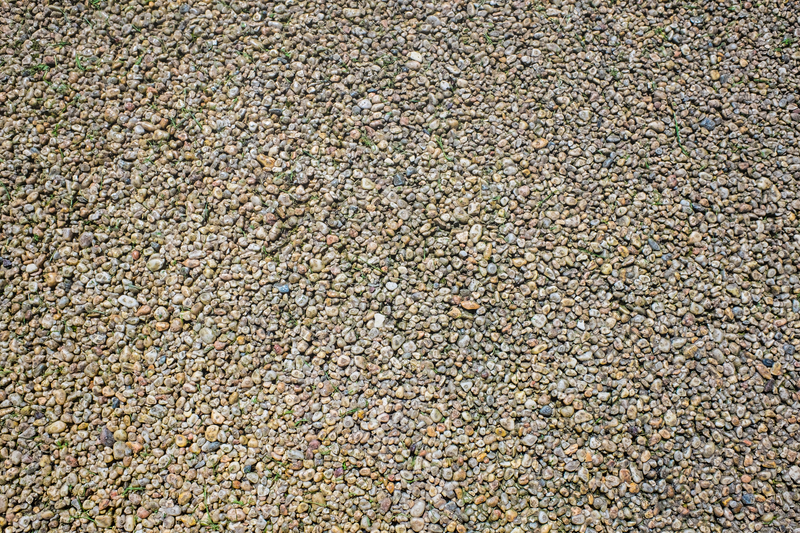
Block Paving:
Block paving requires more regular upkeep. This includes re-sanding joints to prevent weed growth, sealing to protect the surface from stains and moss and occasional repairs or replacements of individual blocks. Annual maintenance costs can range from £100 to £300, depending on the upkeep needed.
5) Additional Factors
Design Complexity:
Intricate patterns or custom designs can increase material and labour costs, whether for Resin or block paving driveways. Complex designs require more time and expertise, impacting the overall budget.
Driveway Size and Shape:
Larger driveways naturally incur higher costs due to increased material and labour requirements. Irregularly shaped driveways or those with multiple curves and turns are also more expensive to install and maintain due to the added complexity.
Accessibility:
The ease of access to the installation site can significantly influence costs. Hard-to-reach areas or sites with limited space for equipment can lead to increased labour and transportation expenses. Consequently, straightforward, easily accessible sites tend to be cheaper to work on.
So, is a resin driveway cheaper than block paving?
In short, it depends.
Generally, block paving is cheaper initially due to the lower cost of materials (especially if using standard concrete blocks) and potentially lower labour costs. However, custom designs or premium materials can increase the price, sometimes making it comparable to or even more expensive than Resin.
Long-term
Resin driveways, being low-maintenance, might incur fewer ongoing costs compared to block paving, which requires regular maintenance like re-sanding joints and potential weed control. This could result in long-term savings for resin driveways.
Clearly, even though the resin driveway cost is initially higher, over time, this difference can either equal out or even be a cheaper option for you in the long run. While cost is an important factor in deciding whether you should go for a resin-bound surface or block paving, you should consider all the other benefits before making any decisions.
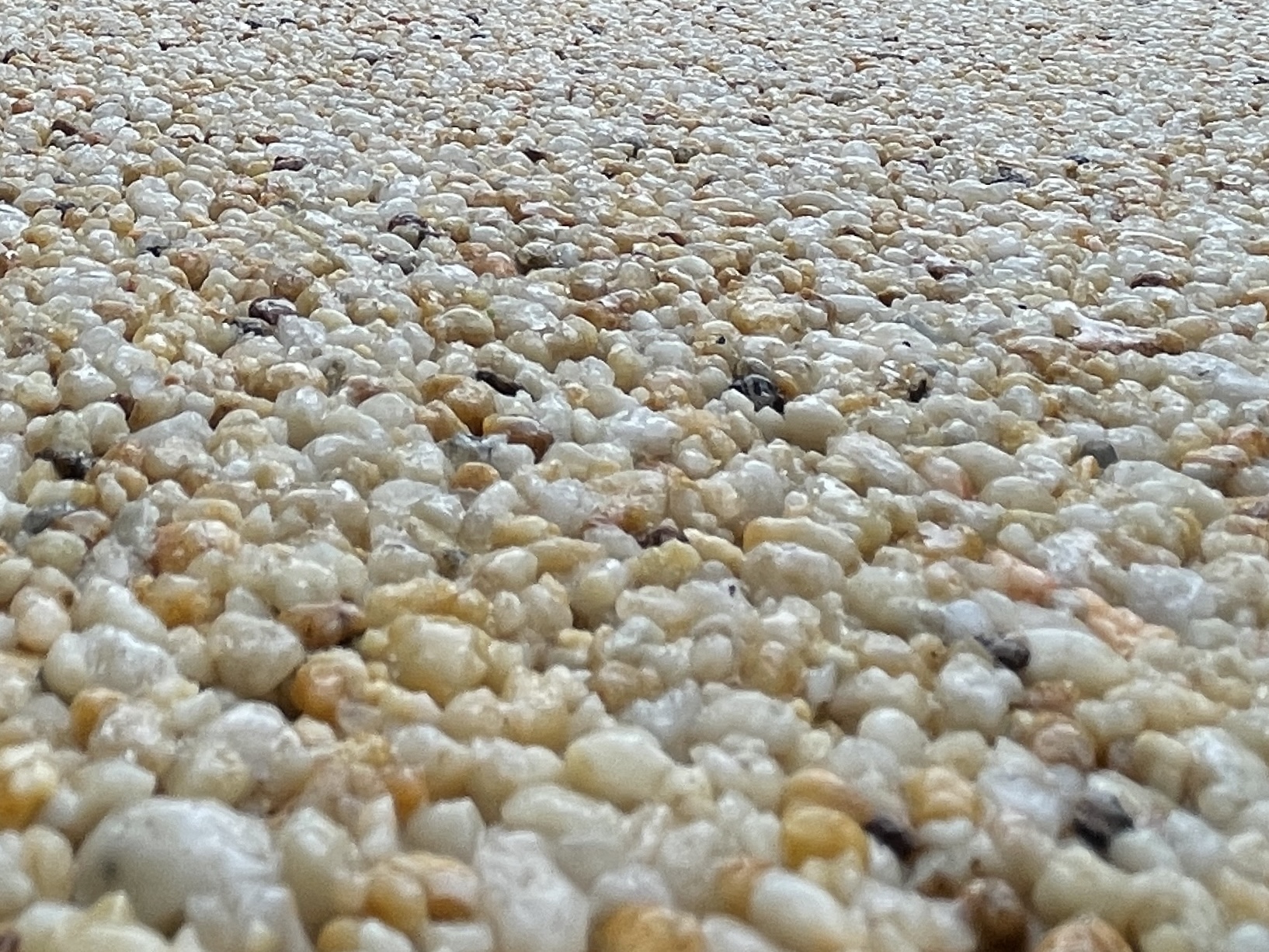
Final Thoughts
Ultimately, the best choice depends on your needs, preferences, and budget. To make an informed decision, consider consulting with professionals who can provide detailed quotes tailored to your project. Assess your priorities—cost, maintenance, or durability—and choose the driveway material that aligns best with your goals.
If you have any questions about resin-bound, gravel, block paving, or tarmac surfaces, please fill in our form below. A member of our team will contact you as soon as possible to help with any surfacing query you may have.
